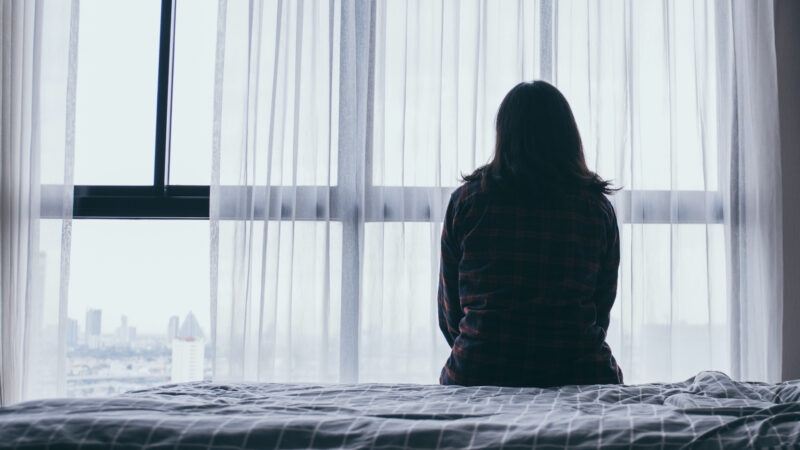
Between March 23rd and April 13th, the Count Dead Women project recorded 16 domestic abuse killings: over twice the ordinary, awful average, which is approximately five deaths a week. According to the project’s founder, Karen Ingala Smith, the number of women killed by men in the first three weeks of lockdown are the highest figures of any 21 day-period since she began tracking fatal violence against women over a decade ago.
Domestic abuse charities have also highlighted a spike in requests for help since the coronavirus lockdown was put in place last month. On Tuesday, statistics from Essex showed that the police had responded to over 300 incidents of domestic abuse in the past month.
The Home Secretary finally spoke about the issue last week in one of daily press conferences. In the government’s first reference to the increasing violence within people’s homes, Priti Patel launched a public awareness campaign for those at risk of abuse, with the hashtag #YouAreNotAlone, and pledged an extra £2m for domestic abuse helplines.
However, as yet, there has been no announcement from the government on additional accommodation or increased refuge funding for those who make the calls and need to leave. In short, the government’s response has committed itself to little more than a publicised helpline.
It is apparent from Patel’s approach that she would rather see perpetrators removed from the home than invest in the support needed for victims who decide to flee. This is to ignore reality. Particularly in the case of mothers facing abuse, many would rather put up with their situation than make their children homeless. If there is no safe alternative, others will not risk contacting the police.
Isabel Hardman’s recent question to the Health Secretary made the stark point that even before lockdown, refuges were turning away around 90 women a night. Last year, the Women’s Aid annual audit showed that 64% of refuge referrals were declined. In London, Solace Women’s Aid’s 23 refuges are now full due to the unprecedented demand.
The Victims’ Commissioner Vera Baird QC and the Domestic Abuse Commissioner for England and Wales Nicole Jacobs have called on the government to support making hotel rooms available to those fleeing domestic abuse. These calls have been echoed by the Labour Party, with the new Shadow Home Secretary, Nick Thomas-Symonds, and shadow minister for domestic violence, Jess Phillips, both campaigning for the government to protect those at risk by utilising available accommodation, such as hotels. There has been no response. Indeed, hotel and hostel chains have accused the government of ignoring their offers of shelter.
Three weeks ago, alongside the Public Interest Law Centre and Solace Women’s Aid, the Labour Campaign for Human Rights sent a letter to the Ministry of Housing, Communities and Local Government about the need to ring-fence funding to house domestic abuse survivors during lockdown. Despite mounting pressure to support victims of domestic violence at a time of increased risk, funding has not been allocated.
To secure the emergency accommodation required for those suffering domestic abuse during the lockdown, we are encouraging the government to seek an urgent amendment to the 1996 Housing Act (also known as the Homelessness Act). This would ensure that those escaping abuse are automatically treated as a priority need.
Over a year has passed since Theresa May’s government first introduced the Domestic Violence Bill. This proposed legislation fell in September 2019, when her successor prorogued parliament. It would be wise to prioritise its replacement.
You can add your name to our call for the Housing Act amendment and for ring-fenced emergency funds here.
Run by Women’s Aid and Refuge, the freephone 24-hour National Domestic Violence Helpline is 0808 2000 247.




More from LabourList
Government announce SEND reform in schools white paper
SPONSORED: ‘Industrial hemp and the challenge of turning Labour’s priorities into practice’
‘A day is a long time in politics, so we need ‘action this day’’